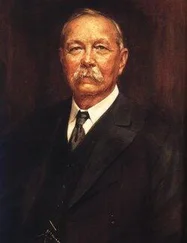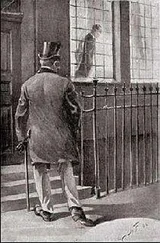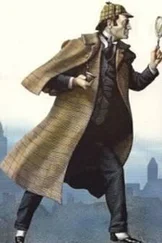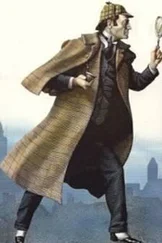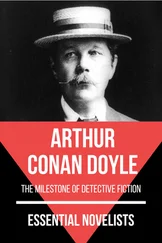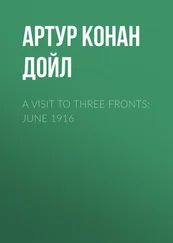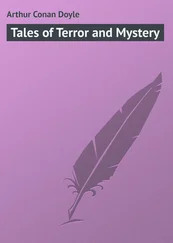* * * * *
But this is digression. I had set out to say something of a day's experience of the French front, though I shall write with a fuller pen when I return from the Argonne. It was for Soissons that we made, passing on the way a part of the scene of our own early operations, including the battlefield of Villers Cotteret—just such a wood as I had imagined. My companion's nephew was one of those Guards' officers whose bodies rest now in the village cemetery, with a little British Jack still flying above them. They lie together, and their grave is tended with pious care. Among the trees beside the road were other graves of soldiers, buried where they had fallen. 'So look around—and choose your ground—and take your rest.'
Soissons is a considerable wreck, though it is very far from being an Ypres. But the cathedral would, and will, make many a patriotic Frenchman weep. These savages cannot keep their hands off a beautiful church. Here, absolutely unchanged through the ages, was the spot where St. Louis had dedicated himself to the Crusade. Every stone of it was holy. And now the lovely old stained glass strews the floor, and the roof lies in a huge heap across the central aisle. A dog was climbing over it as we entered. No wonder the French fight well. Such sights would drive the mildest man to desperation. The abbé, a good priest, with a large humorous face, took us over his shattered domain. He was full of reminiscences of the German occupation of the place. One of his personal anecdotes was indeed marvellous. It was that a lady in the local ambulance had vowed to kiss the first French soldier who re–entered the town. She did so, and it proved to be her husband. The abbé is a good, kind, truthful man—but he has a humorous face.
A walk down a ruined street brings one to the opening of the trenches. There are marks upon the walls of the German occupation. 'Berlin—Paris,' with an arrow of direction, adorns one corner. At another the 76th Regiment have commemorated the fact that they were there in 1870 and again in 1914. If the Soissons folk are wise they will keep these inscriptions as a reminder to the rising generation. I can imagine, however, that their inclination will be to whitewash, fumigate, and forget.
A sudden turn among some broken walls takes one into the communication trench. Our guide is a Commandant of the Staff, a tall, thin man with hard, grey eyes and a severe face. It is the more severe towards us as I gather that he has been deluded into the belief that about one out of six of our soldiers goes to the trenches. For the moment he is not friends with the English. As we go along, however, we gradually get upon better terms, we discover a twinkle in the hard, grey eyes, and the day ends with an exchange of walking–sticks and a renewal of the Entente. May my cane grow into a marshal's baton.
* * * * *
A charming young artillery subaltern is our guide in that maze of trenches, and we walk and walk and walk, with a brisk exchange of compliments between the '75's' of the French and the '77's' of the Germans going on high over our heads. The trenches are boarded at the sides, and have a more permanent look than those of Flanders. Presently we meet a fine, brown–faced, upstanding boy, as keen as a razor, who commands this particular section. A little further on a helmeted captain of infantry, who is an expert sniper, joins our little party. Now we are at the very front trench. I had expected to see primeval men, bearded and shaggy. But the 'Poilus' have disappeared. The men around me were clean and dapper to a remarkable degree. I gathered, however, that they had their internal difficulties. On one board I read an old inscription, 'He is a Boche, but he is the inseparable companion of a French soldier.' Above was a rude drawing of a louse.
I am led to a cunning loop–hole, and have a glimpse through it of a little framed picture of French countryside. There are fields, a road, a sloping hill beyond with trees. Quite close, about thirty or forty yards away, was a low, red–tiled house. 'They are there,' said our guide. 'That is their outpost. We can hear them cough.' Only the guns were coughing that morning, so we heard nothing, but it was certainly wonderful to be so near to the enemy and yet in such peace. I suppose wondering visitors from Berlin are brought up also to hear the French cough. Modern warfare has certainly some extraordinary sides.
Now we are shown all the devices which a year of experience has suggested to the quick brains of our Allies. It is ground upon which one cannot talk with freedom. Every form of bomb, catapult, and trench mortar was ready to hand. Every method of cross–fire had been thought out to an exact degree. There was something, however, about their disposition of a machine gun which disturbed the Commandant. He called for the officer of the gun. His thin lips got thinner and his grey eyes more austere as we waited. Presently there emerged an extraordinarily handsome youth, dark as a Spaniard, from some rabbit hole. He faced the Commandant bravely, and answered back with respect but firmness. 'Pourquoi?' asked the Commandant, and yet again 'Pourquoi?' Adonis had an answer for everything. Both sides appealed to the big Captain of Snipers, who was clearly embarrassed. He stood on one leg and scratched his chin. Finally the Commandant turned away angrily in the midst of one of Adonis' voluble sentences. His face showed that the matter was not ended. War is taken very seriously in the French army, and any sort of professional mistake is very quickly punished. I have been told how many officers of high rank have been broken by the French during the war. The figure was a very high one. There is no more forgiveness for the beaten General than there was in the days of the Republic when the delegate of the National Convention, with a patent portable guillotine, used to drop in at headquarters to support a more vigorous offensive.
* * * * *
As I write these lines there is a burst of bugles in the street, and I go to my open window to see the 41st of the line march down into what may develop into a considerable battle. How I wish they could march down the Strand even as they are. How London would rise to them! Laden like donkeys, with a pile upon their backs and very often both hands full as well, they still get a swing into their march which it is good to see. They march in column of platoons, and the procession is a long one, for a French regiment is, of course, equal to three battalions. The men are shortish, very thick, burned brown in the sun, with never a smile among them—have I not said that they are going down to a grim sector?—but with faces of granite. There was a time when we talked of stiffening the French army. I am prepared to believe that our first expeditionary force was capable of stiffening any conscript army, for I do not think that a finer force ever went down to battle. But to talk about stiffening these people now would be ludicrous. You might as well stiffen the old Guard. There may be weak regiments somewhere, but I have never seen them.
I think that an injustice has been done to the French army by the insistence of artists and cinema operators upon the picturesque Colonial corps. One gets an idea that Arabs and negroes are pulling France out of the fire. It is absolutely false. Her own brave sons are doing the work. The Colonial element is really a very small one—so small that I have not seen a single unit during all my French wanderings. The Colonials are good men, but like our splendid Highlanders they catch the eye in a way which is sometimes a little hard upon their neighbours. When there is hard work to be done it is the good little French piou–piou who usually has to do it. There is no better man in Europe. If we are as good—and I believe we are—it is something to be proud of.
Читать дальше

